
SEO Specialist
.jpg)
Optimization engines use AI and advanced algorithms to deliver search results that match user queries. They go beyond traditional search by focusing on relevance and user experience. This article explains how they work, their role in SEO and key components.
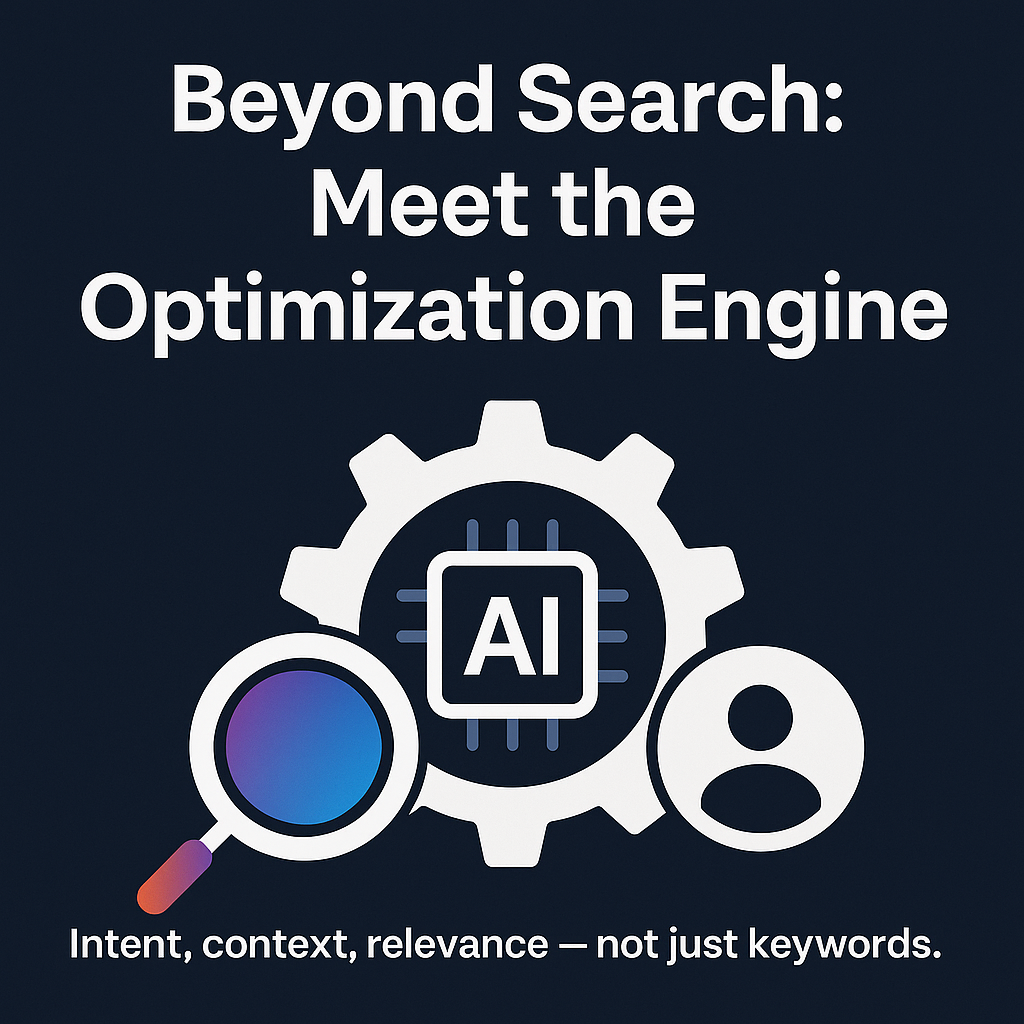
Optimization engines are changing the way search engines find and interact with information online. Unlike traditional search engines that just list web pages, optimization engines deliver results based on search queries, making it better for people searching. They incorporate user intent and context to deliver more relevant results, making it faster to find information.
In digital marketing optimization engines are super powerful. They use advanced algorithms to generate specific recommendations, focusing on improving engagement and conversions through data driven strategies. This shift from just listing web pages to generating insights is a big change in SEO practices.
Understanding how they work reveals why they’re essential for any SEO strategy.
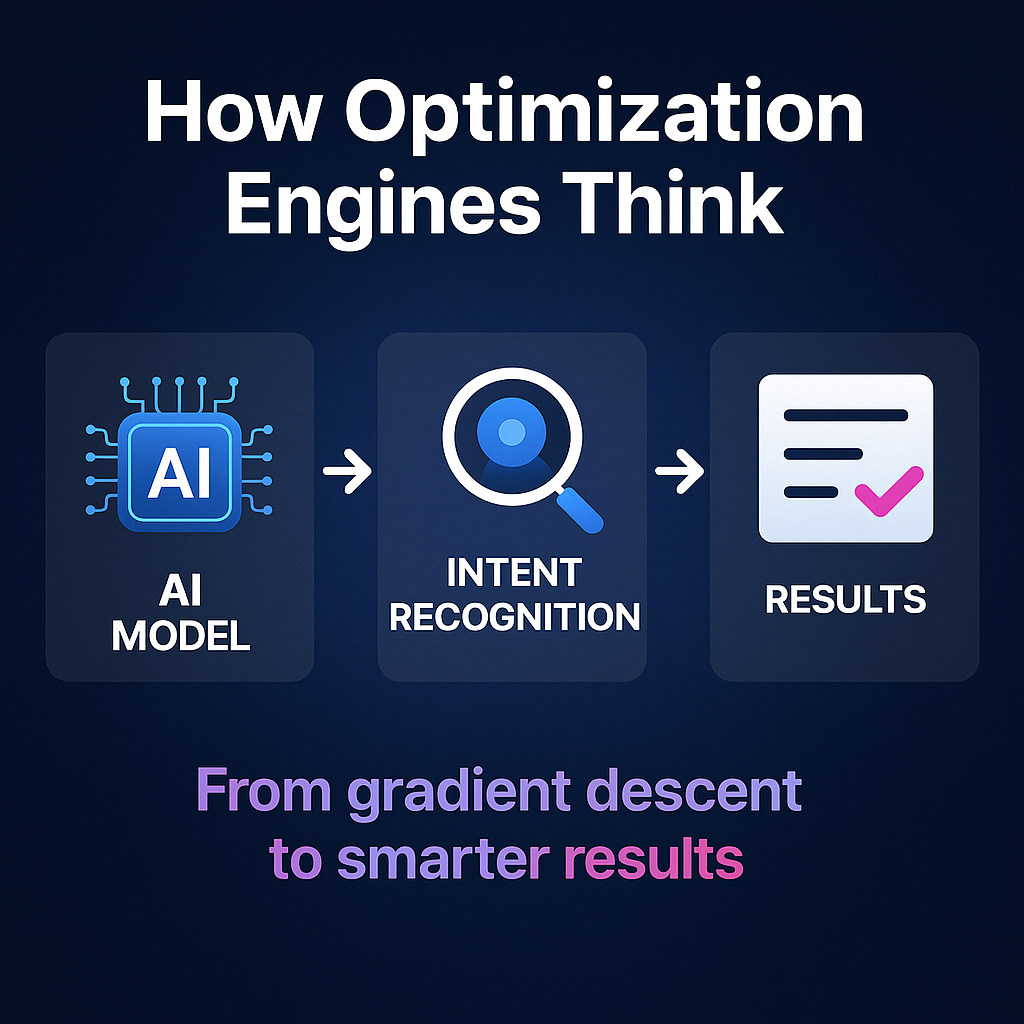
Understanding how optimization engines work requires some basic knowledge of AI and SEO. At the core, mathematical optimization is about finding the best solution from a set of choices in AI, primarily by adjusting model parameters to minimize error and solve problems. Techniques like gradient descent and its variant, Stochastic Gradient Descent (SGD) are used to update model parameters iteratively to reduce the cost function and improve accuracy.
Advanced methods like Adam optimization combine the benefits of previous methods by dynamically adjusting learning rates based on gradient magnitudes, making it faster and better. In SEO context these optimization methods are crucial to help search engines understand and rank content. With the growing influence of machine learning and AI, SEO ranking factors now prioritize content quality and expertise more than ever before.Also, the rise of AI driven search engines and chatbots has introduced new search patterns and requires new optimization strategies. Answer Engine Optimization (AEO) is one such strategy that focuses on providing answers to user queries. This evolution means you need to continuously adapt your SEO efforts to the latest tech and search engine behavior.
Generative AI is a game changer in optimization engines at Georgia Tech. By integrating generative AI engines these engines can prototype and innovate faster making them a key disruptor in the generative engine optimization landscape. Unlike traditional SEO practices that focus on keyword optimization and backlinks, generative AI focuses on content structure so the information provided is relevant and engaging. Google’s AI overviews also provides valuable insights into the evolving capabilities of these technologies.
Types of content most cited by large language models (LLMs) are comparative listicles, blog posts and opinion pieces which are good for engaging users and driving traffic. Visual and interactive elements like videos, infographics and quizzes are also important for AI driven search engines.
Despite the challenges of reduced click through rates due to AI summaries, high quality content and surface content is still key to visibility and user retention for screen readers. Most users still prefer well structured ai overviews.
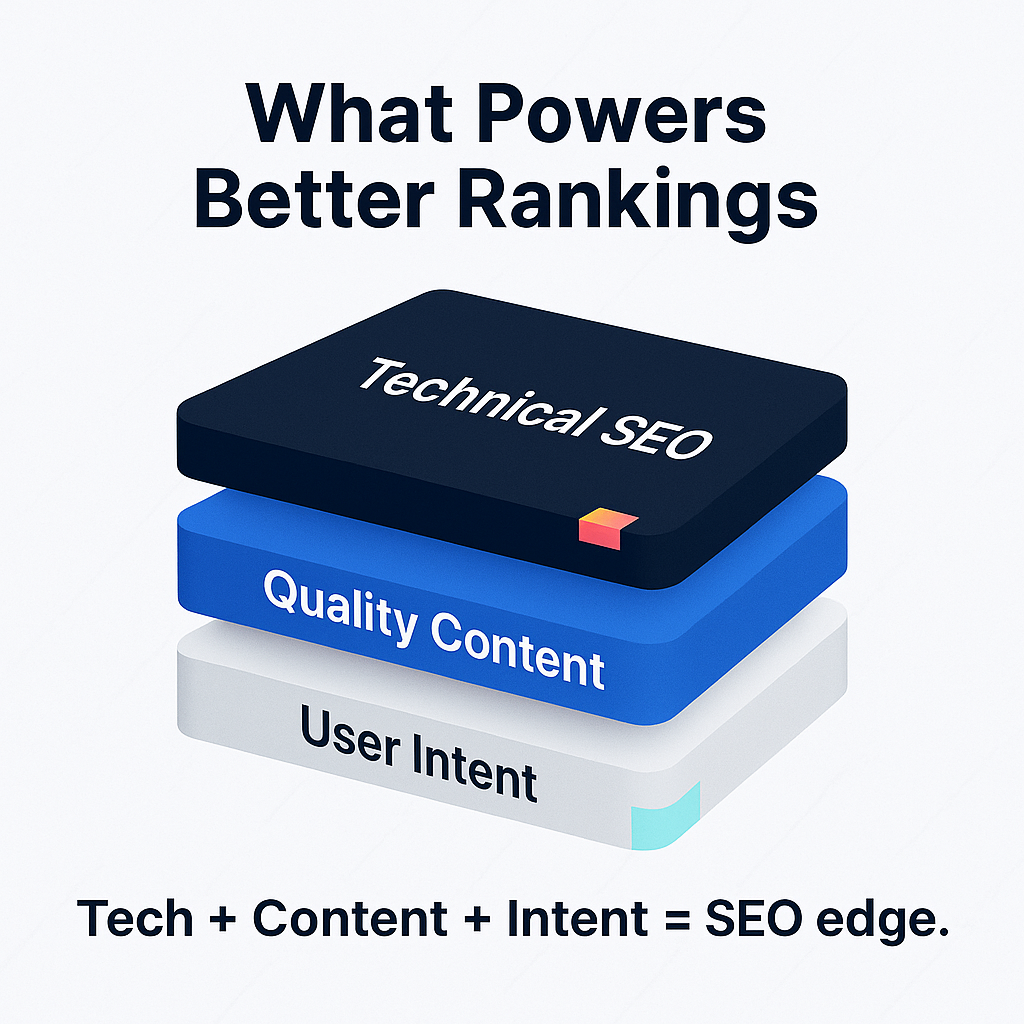
Optimization engines work on several key components:
Off-site enhancements like backlinks and social media signals also contributes to the overall optimization strategy. By combining strong technical elements with high quality content you can boost your website’s presence in search results and user experience.
Let’s dive deeper into some of these components starting with the importance of keyword research and related keywords.
Keyword research is the foundation of any SEO strategy. It allows brands to know what their target audience is searching for so they can create content that meets those needs. Searches on platforms like Google’s Keyword Planner helps businesses optimize their keyword strategy and increase visibility on search engine results pages.Effective keyword strategy not only increases search rankings but also drives more targeted traffic to your site.
Structured data is a powerful tool for optimization. Schema markup helps search engines understand your content better and enhance its appearance in search results. For example structured data can help Google understand breadcrumbs in URLs and enhance content visibility and navigation.
Regularly assessing and optimizing structured data is necessary to keep it effective for both traditional and AI driven search engines.
Understanding user intent and search intent is key to aligning your content with what users are actually looking for. Content that meets user intent not only increases engagement but also click through rates on search results and visibility. Users may find helpful information that matches their needs.
Websites that answer user queries are more likely to see higher conversion rates and overall user satisfaction. This alignment with user intent affects how search engines rank content and how users interact with it.
On-page SEO is optimizing individual web pages to improve search engine rankings and drive organic traffic. Key elements are:
Too many or intrusive ads can detract from user experience and users will leave your site early. So balancing monetization and user experience is key to on-page SEO.
Let’s dive into some on-page SEO techniques starting with crafting title tags.
Title tags are important for SEO as they are the headline in search results and affects click through rates. A well structured page title with structured headings should be concise, descriptive and include relevant keywords and anchor text so search engines can understand the content of the page.
This will not only improve your website’s SEO but also drive more targeted traffic.
High quality content is important for engaging users and better search rankings. Creating content should be unique, relevant and helpful and avoid keyword stuffing that can harm readability and user experience.
Tools and strategies to improve writing clarity:
Descriptive URLs improves navigation and user understanding by clearly indicating the content of the page. Including keywords in URLs makes sense and helps search engines understand the content better and improve its visibility in search results.
This benefits SEO and user experience by making it easier for users to find and navigate your site.
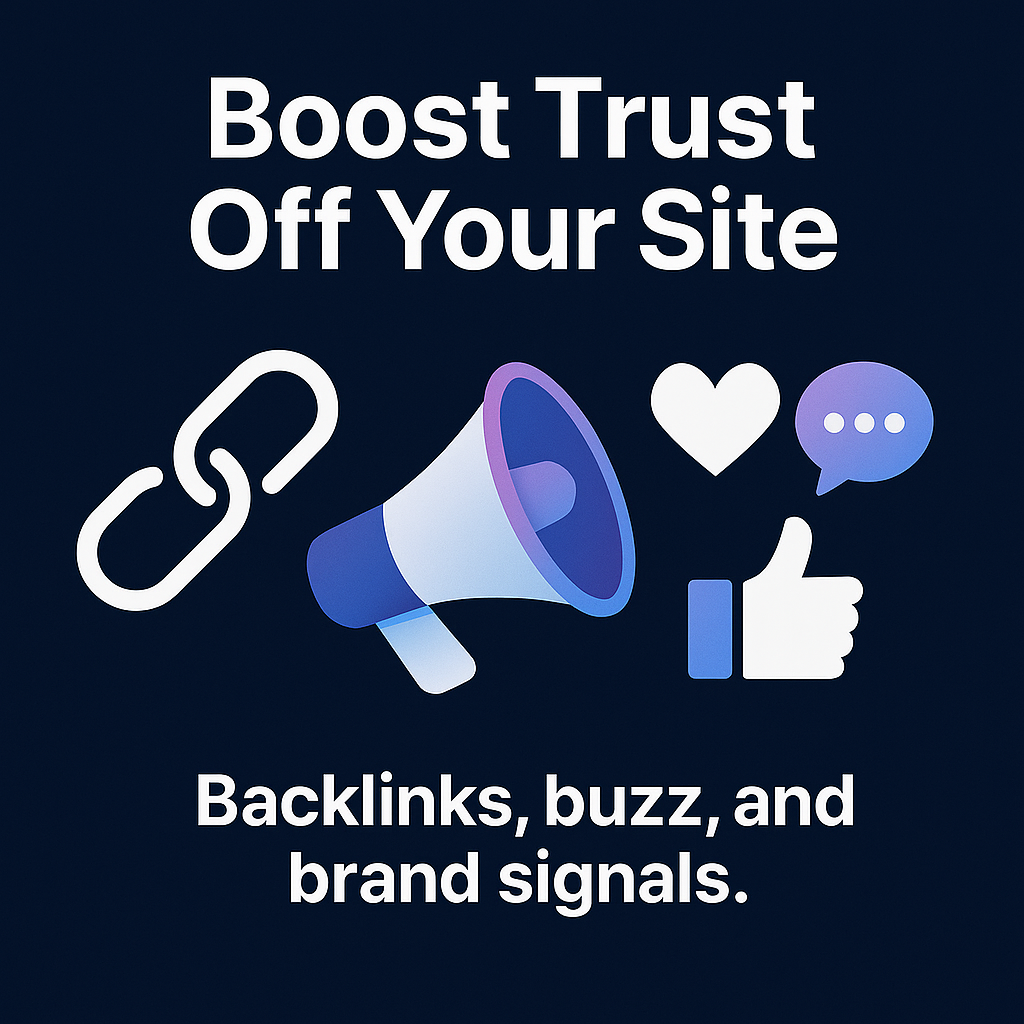
Off-page SEO is actions taken outside your website to improve its search rankings and authority. One of the most important factor in off-page SEO is engagement metrics like likes, comments and shares on social media platforms. These actions can amplify your brand’s visibility and indirectly improve your search engine rankings.
Building a strong backlink profile is another important off-page SEO technique. Getting backlinks from high authority sites significantly boosts your website’s reputation in the eyes of search engines and increase its chances of ranking higher in search results.
Let’s dive into some specific off-page SEO techniques starting with building quality backlinks.
Backlinks are links from one website to another and is a key factor in search engine optimization. Getting backlinks from high authority sites improves your site’s credibility and increase its chances of ranking higher in search engine results.
A strong backlink profile is important for boosting your website’s SEO and driving more organic traffic.
Social media signals like likes, comments and shares affect the ranking and indexing of your content. Engaging with your audience on social media platforms can amplify your brand’s visibility and indirectly improve your search engine rankings.
This makes social media a important tool in your SEO efforts.
Digital PR is important for modern marketing strategies and can improve your brand’s visibility and credibility. Getting media mentions through digital PR efforts can improve your brand’s authority and trustworthiness in the industry.
Investing in digital PR can expand your reach and establish a strong authoritative presence in the market.
Local SEO is important for businesses that want to attract nearby customers who are actively looking for their services. By optimizing your Google Business Profile and encouraging customer reviews you can improve your search rankings and build customer trust. Implementing local SEO can drive more foot traffic and higher conversion rates by targeting local customers who are ready to buy.Local SEO is also a cost effective marketing strategy where businesses can reach local customers without high advertising cost. By consistently showing up in local search results businesses can establish long term rankings and credibility in their community. This makes local SEO an important part of any SEO strategy.
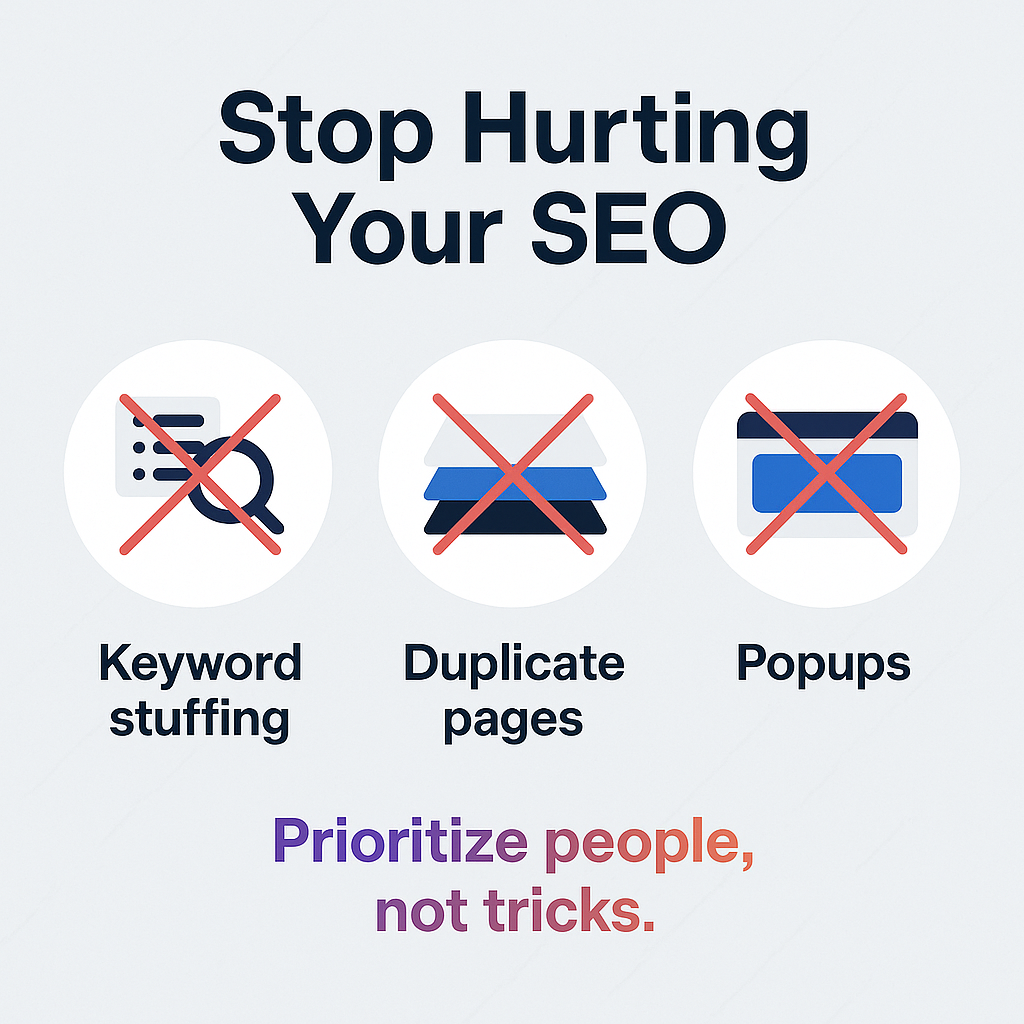
Identifying and avoiding common SEO mistakes is crucial to stay ahead online. Regular audits allow you to identify issues like traffic drops and broken links and ensure your website is optimized and aligned with best practices. Websites with non-valuable indexed pages may suffer from lower rankings as search engines prioritize useful content.
Keeping a clean index and reviewing your SEO strategies regularly can boost your website’s performance and visibility. Let’s explore some common mistakes to avoid starting with keyword stuffing.
Keyword stuffing is a bad practice that hurts search engine optimization. Overusing keywords can lead to penalties from search engines and create a poor reading experience and users will disengage.
Using a balanced approach to keyword usage focusing on natural language enhances both SEO and user experience. It’s important to avoid keyword stuffing and instead use keywords strategically and sparingly to maintain content quality and readability.
Duplicate content confuses search engines and makes it difficult for them to determine which page should rank for relevant queries. This can dilute your content and result to penalties and harm your overall SEO rankings.
Using canonical tags to indicate the preferred version of content on a page can help mitigate duplicate content issues and let search engines know which pages to prioritize.
Intrusive ads can significantly hinder a good user experience by distracting users from the content. Limiting disruptive ads on websites is important for good user experience. Ads that prevent users from reading the content can lead to higher bounce rates and lower engagement.
So minimizing disruptive ads is an important part of optimizing content for better user experience and search engine rankings.
Measuring the success of your optimization efforts is crucial for continuous improvement. Key activities include:
SEO is an ongoing process and continuous adjustments are needed to keep up with the changing algorithms and user behavior.Reviewing and updating your SEO strategies ensures you stay on top of search engine updates and user behavior changes. Monitoring your website’s performance helps you detect issues like traffic drops and broken links and address them immediately to maintain optimal performance.
Let’s explore some ways to measure SEO success starting with analytics tools.
Analytics tools are essential to understand your website’s performance. Recommended tools to use are Google Analytics and Google Search Console. The URL Inspection Tool in Search Console allows you to see how Google sees your page and provides valuable insights for performance assessment and optimization.
These tools help you track metrics, identify areas for improvement and make data driven decisions to improve your SEO efforts.
Regular performance audits are important to ensure your website is aligned with optimization best practices. Audits help you identify issues like broken links, outdated content and other factors that can harm your search engine rankings.
By doing regular audits you can maintain a high performing website that meets the evolving standards of SEO.
Trending is important to stay competitive in the ever changing digital landscape. To trend effectively:
Staying up to date with the latest trends and best practices is important to optimize your new content and maintain a strong online presence. Here are some tips to do that.
The future of optimization engines is shaped by technological advancements and user behavior changes including:
Video content is becoming more important for SEO with many consumers preferring video over text. Brands with their names in website addresses are also dominating search results showing the need for strategic branding.
Stay updated with search landscape trends and adapt your SEO strategies accordingly to remain competitive and effective in the digital marketing landscape.
In summary optimization engines are key to modern SEO. By understanding how they work and using key components like keyword research, structured data and user intent you can boost your online presence. On-page and off-page SEO combined with regular performance audits and trending will keep your optimization efforts effective and in line with best practices. As technology evolves stay informed and proactive and you’ll be ahead of the curve. Use these strategies and watch your digital marketing fly.
Traditional search engines rely on keyword matches to show web pages whereas optimization engines use advanced algorithms to show personalized results based on user intent and context.
Generative AI is big for SEO as it prioritizes content relevance and user engagement over traditional keyword optimization and can change the search engine landscape. Embracing this shift can improve content quality and user experience.
Keyword research is important in SEO as it reveals the search terms your target audience is using so you can create content that’s relevant and visible and meets user needs.
To improve your SEO avoid mistakes like keyword stuffing, duplicate content and intrusive ads as these can harm user experience and affect your search engine rankings. Prioritize quality content and user experience to win.
To measure the success of your SEO use analytics tools like Google Analytics and Search Console, do regular performance audits and stay on top of industry trends. This will give you clear insights and help you adapt for continued success.